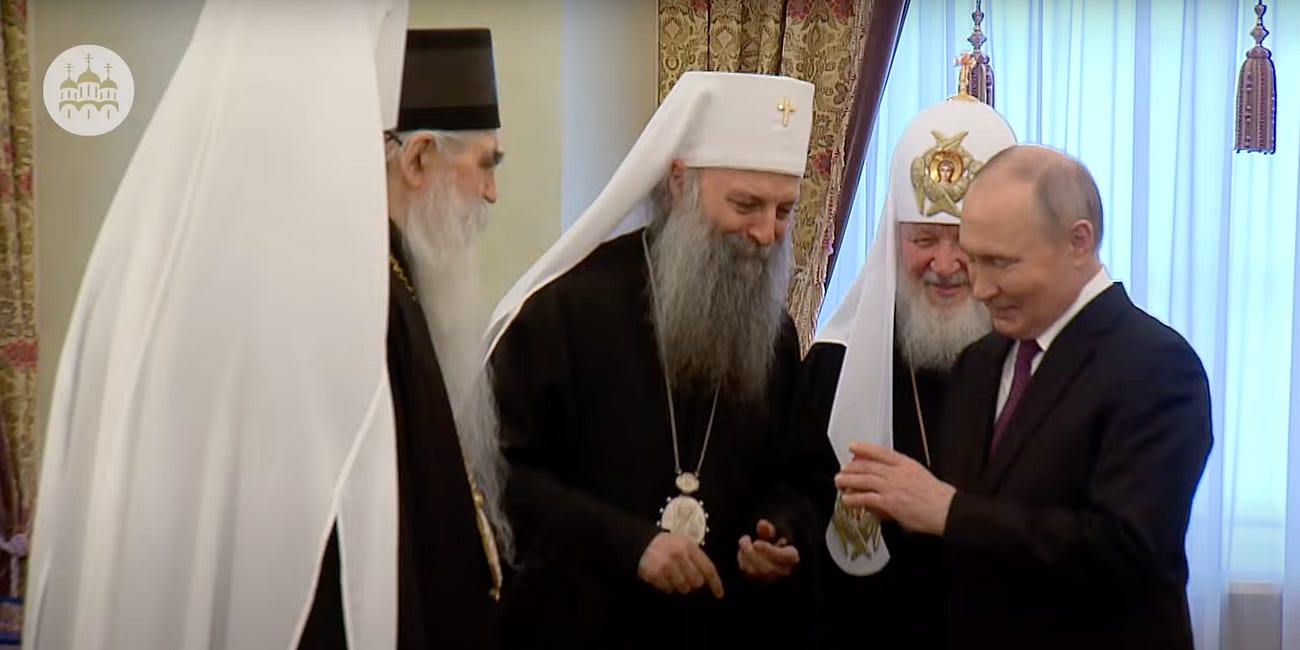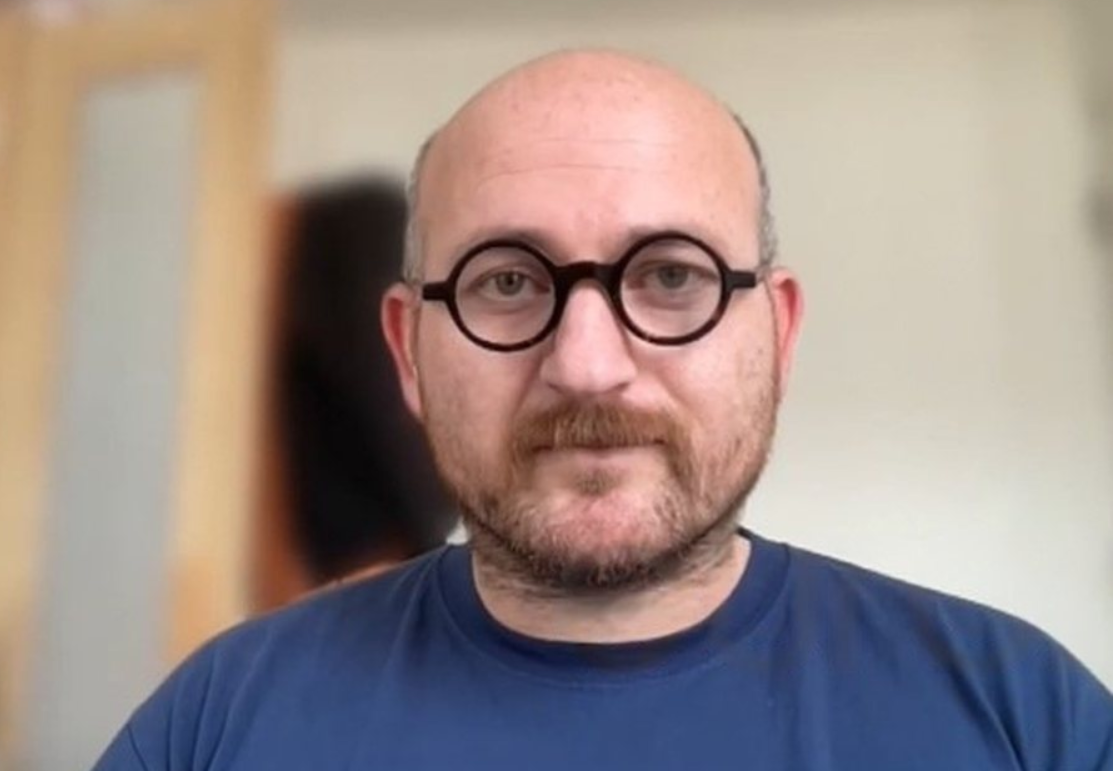Vucic’s “illness” is a lie. Trump refused the meeting, Putin won’t take his calls, and Serbia’s autocrat is running out of exits.
May -3-2025
In a twist emblematic of the volatile geopolitical currents gripping the Balkans, Serbian President Aleksandar Vucic abruptly ended his visit to the United States on Friday, citing sudden illness¹. But according to sources with direct knowledge of the matter, illness may have served more as a diplomatic smokescreen than an accurate diagnosis. Multiple verified insiders tell The Gunpowder Chronicles that Vucic’s health was not the primary driver behind his sudden departure, it was rejection.
Originally intended as a high-stakes charm offensive, Vucic’s visit to the U.S. had been touted by Serbian state media as a rare opportunity to meet senior Republican figures and potentially secure face time with U.S. President Donald Trump. Instead, sources say, Trump refused the meeting outright. According to these insiders, the rejection came after pressure from both within Trump’s political inner circle and signals from Moscow, where Vucic’s recent standing has also reportedly deteriorated.
“Even if he were half dead, Vucic would have met Trump if he had the chance,” a well-placed source familiar with the discussions said. “But Trump shut it down. There was no intention to meet.” The source claimed that the meeting was initially pushed by Trump’s son, Donald Trump Jr., and former U.S. envoy Richard Grenell. But those efforts, they said, were rebuffed after Trump learned of growing anti-Trump sentiment in Serbia, coupled with troubling intelligence from Russian counterparts suggesting Vucic was no longer a trusted partner.
The broader implications of this diplomatic snub are significant. For years, Vucic has walked a tightrope between East and West, positioning himself as Serbia’s indispensable strongman, courted by Brussels, tolerated by Washington, and accommodated by Moscow. But the events of this week suggest that this balancing act may be unraveling, and that Vucic’s circle of allies is shrinking fast.
The fallout, insiders suggest, could be traced back to several key developments. One is Vucic’s controversial protection of Milan Radoicic, the Serb nationalist implicated in the September 2023 armed attack in northern Kosovo that killed a Kosovo police officer and raised regional tensions². Sources claim that Trump’s team, briefed by European and American intelligence officials, now views Vucic’s role in shielding Radoicic as politically toxic.
Another is a quiet, high-stakes meeting that Vucic reportedly arranged in Florida with a Serbian businessman who fled to the U.S. after allegedly embezzling upwards of €630 million through a network of shell companies linked to Vucic’s administration in Belgrade.
That context makes the role of Donald Trump Jr. and Richard Grenell especially consequential. This March, Trump Jr. visited Vucic in Belgrade in a move seen as an overt attempt to counter the escalating student-led anti-government protests that have swept Serbia. On his podcast, Jr. offered Vucic a friendly, uncritical platform to delegitimise the mass demonstrations, framing them as a foreign-funded conspiracy, an echo of the narrative that authoritarian regimes from Moscow to Caracas have deployed to justify repression³.
But the interview went beyond spin. It was, according to multiple political analysts and U.S. diplomatic sources, an effort to provide Vucic with a lifeline of legitimacy before a potential crackdown⁴. The timing was not coincidental: the broadcast aired just days before the largest anti-government protest in recent Serbian history, fueled by anger over institutional corruption and a deadly railway station collapse in Novi Sad. Rather than address these domestic failures, Vucic, aided by Trump Jr.’s soft-touch propaganda, blamed “external actors” and “color revolutionaries.”
This wasn’t the first time Grenell had played kingmaker in the Balkans, or attempted to. In 2020, as special envoy, Grenell orchestrated a series of political manoeuvres that culminated in the collapse of Kosovo Prime Minister Albin Kurti’s first government⁵. A European Parliament report later concluded that Grenell’s actions, which involved the selective leaking of troop withdrawal threats and coordinated media disinformation, were central to the political coup. That playbook, it appears, is again in use.
Just this February, Grenell renewed his attacks on Kurti via social media, once more accusing him of destabilising the region. But newly leaked WhatsApp messages between Grenell and Kosovo media figure Berat Buzhala show direct coordination in spreading election disinformation, revealing Grenell’s continued engagement in Balkan politics despite lacking any official mandate.
These revelations follow years of scrutiny over Grenell’s foreign entanglements. Investigations by The Washington Post, ProPublica, and Der Spiegel have uncovered financial ties to Russian-aligned figures like Moldovan oligarch Vladimir Plahotniuc and Hungarian nationalist networks. Grenell allegedly failed to register these dealings under the Foreign Agents Registration Act (FARA), the same law that ensnared Trump aides Paul Manafort and Rick Gates. U.S. national security lawyers have since argued that Grenell’s past alone should disqualify him from holding any sensitive governmental role.
The bigger picture, however, points to a confluence of nationalist opportunism, media manipulation, and geopolitical realignment. Vucic’s abrupt return to Belgrade signals a moment of isolation for a leader once courted by both Moscow and Washington. Trump’s rebuff, likely informed by both political calculus and strategic briefings, suggests a distancing from Vucic, whose usefulness as a regional strongman may have expired.
In Belgrade, Vucic’s government has yet to release a detailed statement. State broadcaster RTS only cited⁶ “health concerns,” while his office has remained unreachable. Grenell, for his part, posted a vague tweet: “Sorry to miss you but hope all is ok.”⁷
Trump Jr. has remained silent.
But beneath the official silence lies a deeper reality. The networks that once propped up Vucic from Trumpworld to Russian influence brokers, are pulling back, even turning hostile. And in their place is a spreading revolt at home, a growing resistance abroad, and the sharp glare of international scrutiny.
Vucic may have hoped for a victory lap in the U.S. Instead, he returned with a diplomatic wound that no doctor can treat.


Shënim:
Redaksia, diplomacia. dk nuk e merr përgjegjësinë për pikëpamjet e autorit në shkrimin e botuar!
Respekt!
